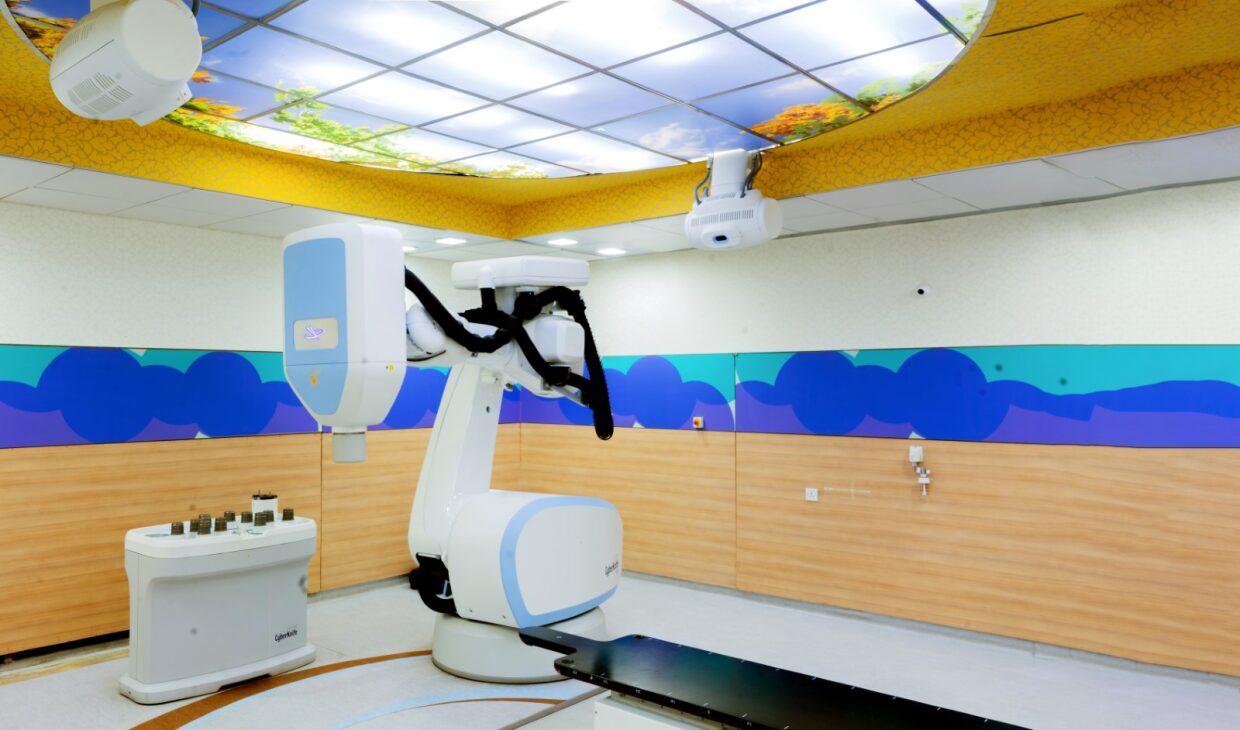

Cyberknife: A type of robotic radiation therapy
Cyberknife therapy is a type of robotic radiation therapy that can treat cancer without being invasive. It delivers a high radiation dose directly to the tumour, minimizing the exposure of healthy tissues to radiation.
The key features of Cyberknife therapy include:
1. Precision targeting: The Cyberknife system uses advanced imaging and tracking technology to accurately locate and target the tumour, even if it moves during treatment.
2. Robotic delivery: The Cyberknife system is a robotic arm that can move around the patient to deliver radiation from multiple angles, allowing for highly targeted and customized treatment plans.
3. No surgical incision: Cyberknife is a non-invasive treatment, so there is no surgical incision required.
4. Shorter treatment duration: Cyberknife treatments typically require only 1-5 sessions, whereas traditional radiation therapy may take multiple sessions over several weeks.
Cyberknife therapy is a widely used treatment for different types of cancer like brain, lung, prostate, liver, and spinal tumours. It can be a viable option for patients who are not suitable for traditional surgery or radiation therapy. Additionally, it can help to reduce the side effects of treatment.
Cyberknife has been used to treat a variety of malignancies, including:
1. Brain Tumors:
2. Lung Cancer:
3. Prostate Cancer:
4. Liver Cancer:
5. Spinal Tumors:
6. Pancreatic Cancer:
Cyberknife’s versatility allows it to treat a wide range of malignancies, making it a valuable tool in the oncologist’s arsenal. The precision and accuracy of Cyberknife treatment can lead to improved outcomes and reduced side effects for many cancer patients.
Throat cancer is used to represent cancers of the throat. It is occasionally named laryngeal…
Chronic Kidney Disease (CKD) is a long-term condition where the kidneys gradually lose their ability…
Your heart is like the engine of your body. It works 24/7—pumping blood, carrying…
We all know that brushing and flossing are important for keeping our teeth healthy. But…
As seasons change and viral infections become more rampant, children are often the most affected.…
Fatty liver disease, or steatotic liver disease, is becoming more and more common across the…